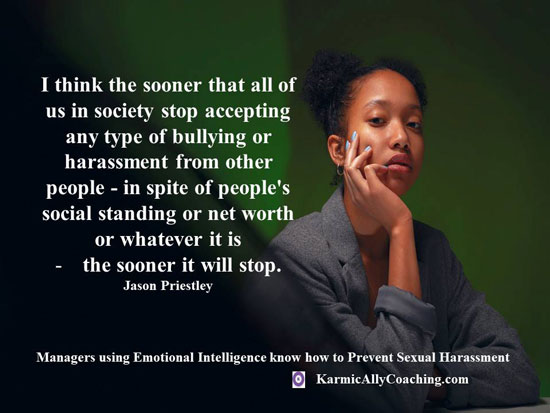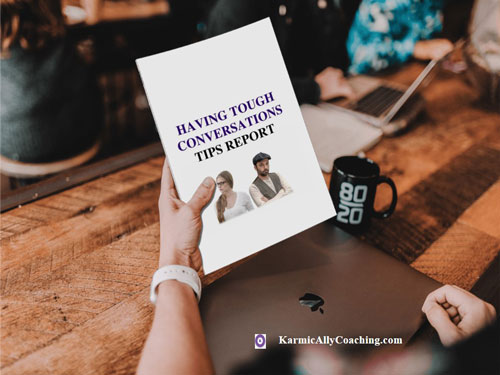This post has already been read 602 times!

Sexual Harassment in the Workplace is a serious issue. It simply can’t be brushed under the corporate carpet. In fact, it’s a global challenge.
The Australian Financial Review detailed complaints against bullying and sexual harassment in the Big Four and catalogued the number of cases at KPMG during the period 2014 to 2019. However, most employees contacted by the paper declined to detail their cases.
The article believes this might have been due to the use of non-disclosure agreements after workplace. Other Big Four firms were also mentioned in that article.
It reminds me of a case closer to home known as the KPMG case. A lady Chartered Accountant joined the firm in 2005 and was subjected to indecent and embarrassing acts by KPMG’s senior employees. Her employment was also terminated post her complaint.
Long story short, the perpetrators were arrested in 2007 but later released on bail and even got promoted!
It was quite sensational in the Indian financial services industry. My employers immediately set up a 3-person committee for any complaints we might have had in our firm. They went on to create policies for such complaints as well.
I’ve often wondered if the incidents I’d narrated in my post on Workplace Bullying and Harassment would have had a committee set up too. One thing is for sure, the firm acted with Emotional Intelligence.
Sexual Harassment Laws in India have come a long way since the Super Cop incident.
This is the story of an inspiring woman who decided to fight against a society where violation of dignity of women was still considered casual.
Way back in 1985 Rupan Deol Bajaj, a senior IAS officer, took Super Cop the late KPS Gill to court over a case of sexual harassment and won it. She was the first woman to do so.
The incident happened at a party when KPS Gill, came to Ms Bajaj’s seat and put up a finger on her face ordering her to come along. She told him that he was misbehaving and got up to leave at which point he slapped her posterior. Ms Bajaj was traumatized and the guests at the party were shocked.
More shocking at the time was the concerned High Court quashing her complaint which they considered a trivial offence under Section 95 of the Indian Penal Code not worthy of any prosecution.
The court found the offence unnatural and improbable. Undeterred, Ms Bajaj took the matter all the way to the Supreme Court which overturned the decision of the lower Court.
It came down to the definition of modesty. The Apex Court referred to various dictionaries. Modesty was defined as ‘womanly propriety of behaviour; scrupulous chastity of thought, speech and conduct’ and ‘decorous in manner and conduct; not forward or lewd; shamefast’.
The Supreme Court ruled that the offence of outraging the modesty of women was committed under Sections 354 and 509 of the Indian Penal Code.
This isn’t the only instance of high-profile sexual harassment cases
An article in the Business Today has curated a collection of high-profile cases which shocked the nation. India has its fair share of #MeToo cases. Fortunately, action has been taken in each case but I doubt the trauma experienced can really be compensated for.
In the years that have followed, The Sexual Harassment of Women at Workplace (Prevention, Prohibition and Redressal) Act 2013 (“POSH Act”) addresses the issue of workplace sexual harassment faced by women.
The POSH Act is a must read for any professional in any industry to understand what constitutes sexual harassment in the workplace.
If you’re a manager in another country, then make yourself aware of the relevant law and your company policies dealing with such complaints.
What is sexual harassment?
It occurs whenever an employee makes a continued, unwelcome sexual advance, requests sexual favors, or uses inappropriate sexual remarks to another employee against their wishes.
Examples of sexual harassment may include:
- Unwanted jokes, gestures, offensive writing on clothing, or comments of a sexual nature
- Any kind of unwanted physical contact between employees, including scratching, hugging, or kissing
- Repeatedly asking for dates
- Sending emails that contain sexual imagery
- Watching pornography at work
- Putting sexually suggestive objects or pictures on display
- Playing sexually suggestive music

What can you, the Manager, do to prevent sexual harassment at your company?
If you’re a manager at your workplace, it’s important for you to be aware of sexual harassment and how it can affect the company’s work environment.
Here are some questions to consider.
Does your company have a sexual harassment policy in place?
If yes, does this policy, set out what is acceptable and what is not?
It is important that all employees make themselves familiar with this policy, including how to report any sexual harassment encountered.
Does the company have clear procedures in place to report harassment?
All employees should be comfortable to report any behavior they feel is inappropriate and makes them uncomfortable. Staff should feel safe at work and not left to feel alone while dealing with inappropriate colleagues.
In other words, don’t leave it to the company to implement the relevant policies and procedures. Your input is valuable.
Even more valuable is adopting strategies to ensure that you are part of the solution and not ignoring the problem. That’s what a manager with high emotional intelligence does.
7 Strategies an Emotionally Intelligent Manager uses
Incorporate harassment training in your workplace. Have regular training with annual refresher courses. There are online courses available that can help deal with harassment in the workplace.
Raise awareness of sexual harassment. One of the most effective ways to prevent harassment from occurring in the first place is to make people aware of it. Once people understand what can be interpreted as harassment, they’ll be able to avoid it.
Incorporate staff welfare into review meetings. These are usually used to review an employee’s performance, but they can also be an opportunity to review the company. Allow your colleagues to voice any concerns that they may have, either with the company as a whole or with one particular colleague.
Deal with allegations of sexual harassment immediately. Failure to act could allow the problem to get worse. This toxic environment will make your employees uncomfortable.
Use the tips in the free report Having Tough Conversations to come across firm but genuine.
Have a person in place dedicated to dealing with harassment. This can be difficult in smaller companies with employees having to juggle numerous roles. In larger companies, a dedicated HR person who deals with sexual harassment issues can make the employees feel more secure.
Have a zero-tolerance policy towards sexual harassment. Make it clear to all employees and colleagues that any form of sexual harassment will not be tolerated. It does not matter what role the person performing the sexual harassment has in the company, any cases will be dealt with immediately.
Do not laugh at or encourage inappropriate jokes. While it’s important that we all enjoy ourselves at work, it’s also important that we all understand that not everyone has the same sense of humor. Sometimes things said can be offensive rather than funny to some. Keep this point in mind, even in jokes.

Since sexual harassment can happen at any level of the organization, you need to look out for yourself too.
If you believe that you’re being sexually harassed at work, it’s important that you complain to someone in authority there.
By doing this, you will ensure that your employer is able to take action and you can go back to work without having to deal with disrespectful colleagues.
Have you ever experienced sexual or other kinds of harassment in the workplace? What steps did you take to stop the perpetrator from hurting you or others?





 I adhere to the Certified Coaches Alliance Code of Ethics and Standards. A copy is available on request.
I adhere to the Certified Coaches Alliance Code of Ethics and Standards. A copy is available on request.
 Let's Talk through the Connect Form:
Let's Talk through the Connect Form: